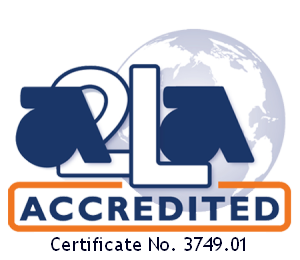In recognition of the necessity of an education oriented proficiency program to serve the local needs of large and intermediate sized microbiology laboratories in British Columbia, the Clinical Microbiology Proficiency Testing (CMPT) is created and developed as a service program within the former Division of Medical Microbiology, Department of Pathology of the University of British Columbia
CMPT expands to being the sole mandated proficiency program for all clinical bacteriology laboratories in British Columbia. Since 1990, the program changes significantly with respect to academic activities, the services provided, the number of participating laboratories, and the number of provinces involved.
CMPT starts its International EQA Training Program with the training of our first international delegates (Thailand) to aid them in implementing EQA program in their own communities.
CMPT expands to provide external quality assessment tools for clinical bacteriology, environmental (water) bacteriology, dermatophyte mycology, and enteric parasitology. CMPT participants include laboratories from British Columbia, Alberta, Saskatchewan, the Northwest Territories, Yukon, Nova Scotia, New Brunswick, Prince Edward Island, and Newfoundland.
This year marks a major departure for the CMPT program with respect to the approach and style of challenge samples submitted throughout the year. For the first time the focus of the clinical bacteriology program is oriented towards clinical relevancy as its primary target.
CMPT expands its communication with participants through a quarterly newsletter (Connections) and through its presence on the web.
The paper challenge (PC) format is introduced. PCs extend the arena of laboratory challenges further into the pre-analytic, early phase of laboratory testing.
A new numeric grading scale for grading of Clinical Bacteriology challenges is introduced.
CMPT embarks on the process of meeting international standards for quality management as cited by the International Organization for Standardization (ISO). As a proficiency testing program, CMPT should be able to meet the recommendations of ISO Guide 43. These recommendations are encompassed in the standard ISO 9001, Quality Management. The requirements for both are met within the more stringent standard ISO 17025, Quality Management for Testing Laboratories. CMPT recognizes that quality management is a journey and not a goal, and that registration is only a single marker to signify our compliance with international standards of quality.
The CMPT Mission Statement is amended to include Continual Improvement.
CMPT passes ISO 9001:2000 inspection and registration to the ISO Standard 9001:2000 Quality Management Systems is achieved in May 2002. Undertaking this process of preparation for an external inspection against this international standard demonstrates that CMPT is committed to laboratory quality management.
CMPT’s sister program: Program Office for Laboratory Quality Management (POLQM) is launched; the program is dedicated to a Laboratory Quality Management course, intended for people working in laboratories with an interest for Quality Management .
CMPT expands its PT samples to evaluate laboratories in the testing of Clostricium difficile common antigen and toxin.
This program provides additional simulated CSF, Joint Fluid, and other sterile fluids PT slides to laboratories interested in maintaining proficiency of their personnel in the processing and reading Gram smears. This program is particularly useful for small laboratories that otherwise wouldn’t get the experience through regular patient samples.
CMPT develops a formal relationship with cIQc, a proficiency testing program also hosted by the Department of Pathology and Laboratory Medicine, UBC. cIQc is focused on the provision of challenge materials for breast tumour marker testing including, but not limited to, human epidermal growth factor receptor 2 (HER2). CMPT provides strategic, quality, administrative, and logistic support to cIQc.
A new proficiency testing program “Trichomonas antigen” is implemented by CMPT as a response to laboratory needs to prove proficiency performing this test. The program’s objective is to provide EQA to those laboratories performing laboratory diagnosis of trichomoniasis using the OSOM Trichomonas Rapid Test (Sekisui Chemical Co).
On January 29, 2013 CMPT relocates to University of British Columbia’s Point Grey campus. The move to a bigger and newer laboratory space allows CMPT to install and use more technologically advanced equipment.
CMPT implements a new proficiency testing program, Shiga Toxin PT program to provide EQA to laboratories performing detection of Shiga toxin producing organisms.
CMPT is successfully audited by A2LA and receives accreditation to ISO/IEC 17043:2010 standard. ISO17043:2010 (Conformity Assessment – General Requirements for proficiency testing) has become the cornerstone quality standard specifically designed to address the issues of proficiency testing providers, regardless of the communities and disciplines with whom they work.
CMPT implements a new Drinking Water PT program: Drinking Water samples for HPC testing.
CMPT creates the Professional Development Course for laboratory staff. The course is assigned PEP (Professional Enhancement Program) hours and CPS (Continual Professional Studies) credits by CSMLS.
CMPT launches the Acid Fast Bacilli Program and the Enteric Panel Program
CMPT starts succession planning
Early in 2021, CMPT in collaboration with BC Centre for Disease Control (BCCDC) created a COVID-19 proficiency testing program geared to point of care (POC) testing sites within the different Health Authorities. As testing became widespread and rapid testing systems began to proliferate, the College of Physicians and Surgeons of British Columbia, Diagnostic Accreditation Program (DAP), required all testing sites – private and public- to be accredited.
After almost 40 years with CMPT, Dr. Michael Noble passed the baton to Dr. Lucy Perrone, the new holder of the Donald B. Rix Professorship of Laboratory Quality.
Thanks to the generous donation from the Rix Family Fund the holders of this Professorship will have the mandate to grow the current programs through expanding the services currently being provided and developing new ones. They will also have the opportunity to collaborate with current and future partners in the expanding arena of laboratory quality and quality improvement.
As a result of CMPT’s grow and expanding services that go beyond the Clinical microbiology field, CMPT changes its name to Canadian Microbiology Proficiency Testing so that the name better reflects the broad range of services it provides.




